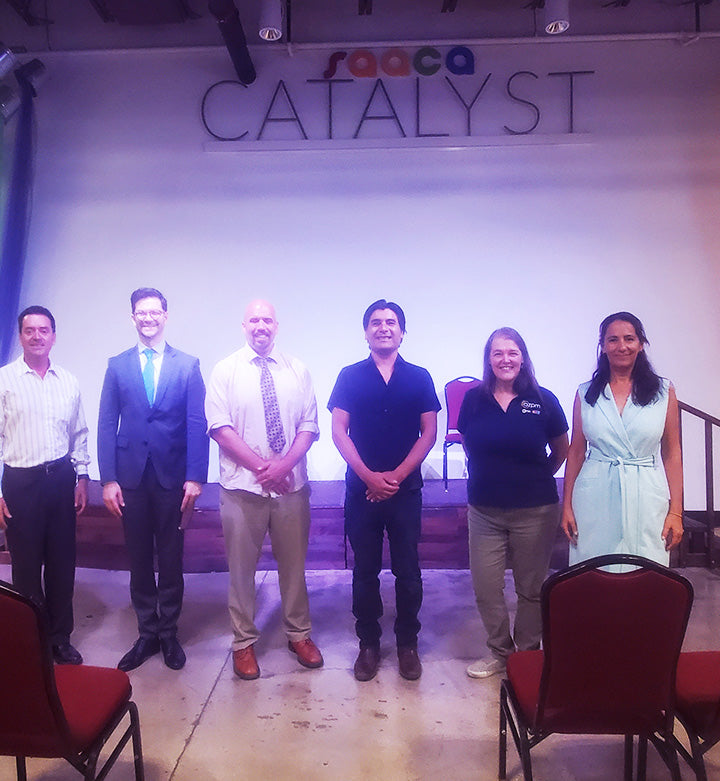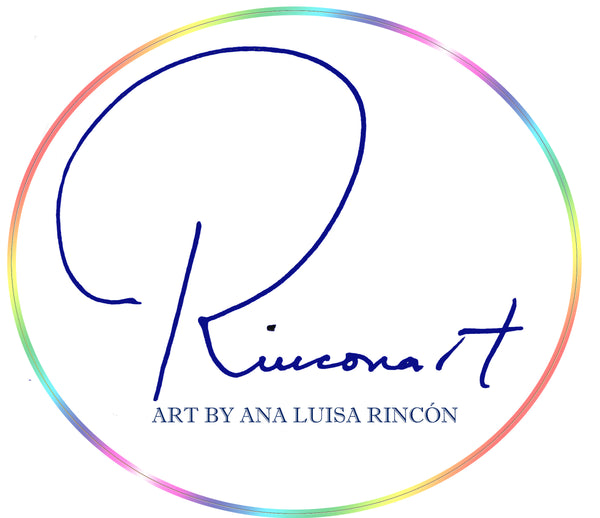
Circling Back to American Historia (Part 1)
Ana RinconInitial Publication on June 26th 2025
Live Art at American Historia
Hello friends! It’s time for a Rinconart update. Last year was full of growth and meaningful experiences that I look forward to sharing with you. One highlight was being honored as a guest artist at CATALYST in Tucson to paint live during the pre-screening of American Historia: The Untold History of Latinos, a PBS series by John Leguizamo and Ben DeJesus. This amazing documentary series powerfully explores Indigenous roots, Latino contributions in U.S. history, and cultural survival today. The evening concluded with an engaging panel discussion featuring local leaders and event organizers, including Arizona Public Media, and Rafael Barceló Durazo, Consul of Mexico in Tucson.

Honest Reflections on Latino Identity
Leguizamo’s series delivers powerful visuals and a raw portrayal of Latino erasure in U.S. history, and touches on Mexico’s deep-rooted classism toward Indigenous communities (a legacy from Spain), providing a cohesive perspective as to where we are today. Migration from Mexico happens for many reasons, and given our intertwined histories, fair solutions are essential.
While living in Santa María, California, I often drove through the scenic Central Coast and visited nearby strawberry fields, where migrant workers graciously allowed me to photograph them, offering a glimpse into their hard work and resilience. Most immigrants I’ve met want to come to the U.S. legally but often lack access—or even basic education—on visa programs like H-2A and H-2B, leaving them vulnerable to fraud. I learned of stories working in public service for the state of Washington, where agricultural workers reported intimidation, exploitation, and sexual violence, corroborating that illegal migration puts lives at risk.

Strawberry Fields Workers 2009
Ana Luisa Rincón
Illegal migration creates real vulnerabilities. Having lived near the Arizona border for years, I’ve seen rising issues like addiction and homelessness—often overlooked by local leadership and a far cry from the Tucson I once captured in Tucson Glowing.
As a nation of laws, we must protect what draws people here: Safety, opportunity, and dignity, and while a controversial subject, enforcing the law is part of it. I do not support the violent protests nor the impersonation of latino activists for political agendas, on any side of the spectrum.
It is encouraging these days to see that U.S. and Mexican officials are joining forces to hold corrupt Mexican leaders and cartels accountable for the first time. Through bilingual projects, I’ve seen organizations like United National Labor connect workers to legal opportunities and help modernize the visa process.
